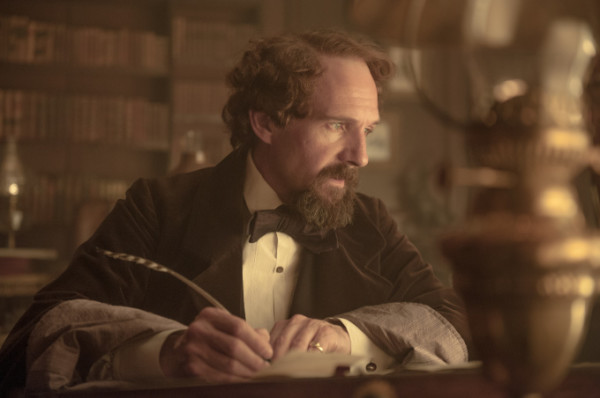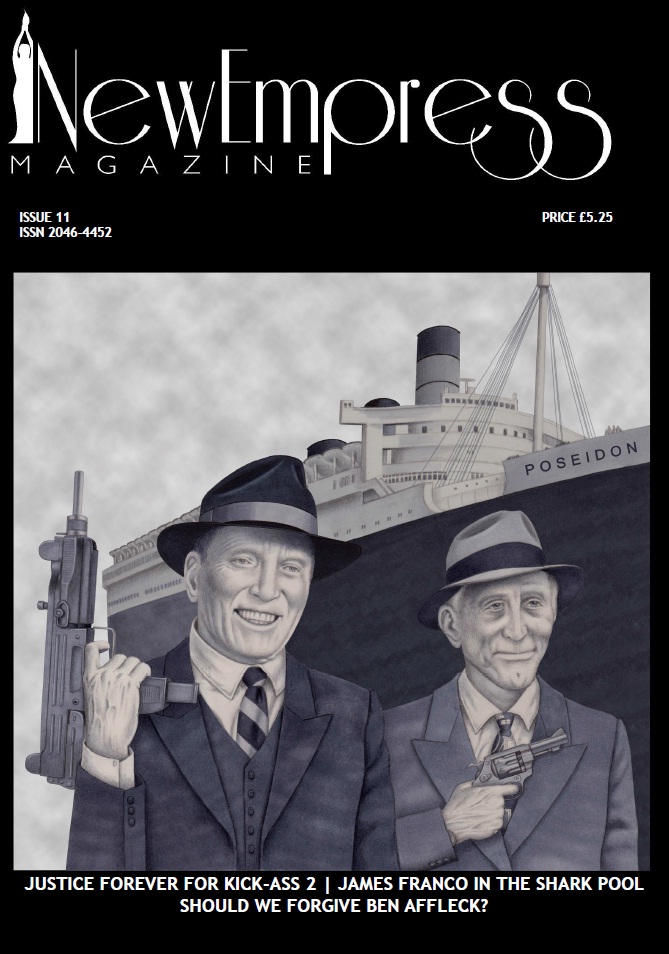
Following on from his directorial debut, Coriolanus (2011), Ralph Fiennes once again takes up acting and megaphone duties for the biopic The Invisible Woman, a story focused on the telling of a secret relationship between author Charles Dickens (Fiennes) and actress Ellen ‘Nelly’ Ternan (Felicity Jones).
The extra-marital affair is thought to have begun in 1857 when Dickens was 45 (and hugely famous) and Ternan just 18. Along the same lines as Cary Fukunaga’s Jane Eyre (2011), The Invisible Woman takes a more modern approach to the Victorian era and is not content to simply rest on its costume drama laurels. Fiennes’ occasionally unusual shot choices (such as the camera following the back of Jones’ head as she strides along a beach at Margate) lend the film a stylish air.
The narrative is structured through a series of flashbacks and purely from Ellen’s point of view. Sreenwriters Abi Morgan and Claire Tomalin look to give a voice to the women in the story and exam the social position of Ellen as she sits in the perpetual shade of such a famous and successful public figure as Dickens. The script is peppered with known facts as much as speculation about the relationship, but manages to balance things out so that it is not overburdened by stifling historical accuracy and is freed to deliver a dramatic love story.
Felicity Jones gives a strong performance, as she moves between the young Nelly to the older, more grief stricken and secretive lady. Fiennes, in turn, is reserved as the middle-aged creator of such classics as Oliver Twist, David Copperfield and Great Expectations. Tom Hollander as Dickens’ close friend, Wilkie Collins, provides solid support as ever but Joanna Scanlan, as Catherine Dickens, manages to quietly steal all of her scenes.
With some fine acting on show and Fiennes’ strong direction, The Invisible Woman avoids a tendency towards salacious rumourmongering and considers the relationship and accompanying consequences that being a mistress of this period would have had to cope with.


















